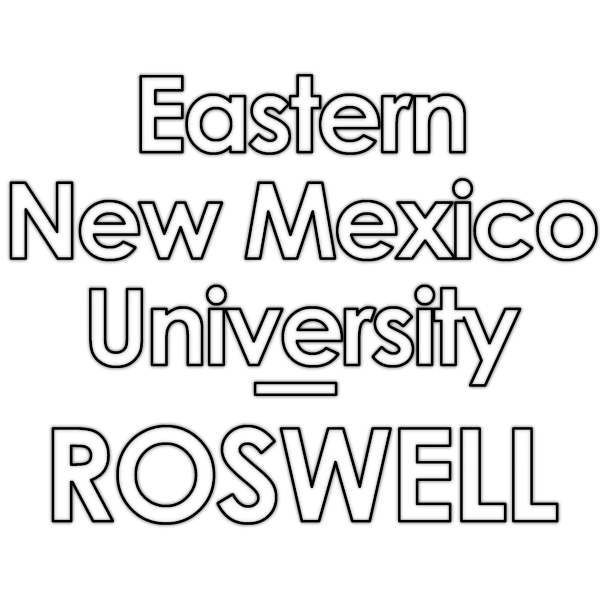About our Program
Human Services A. A.
Associate of Arts
This particular degree, Associate of Arts in Behavioral Sciences, Human Services concentration is meant for students who are interested in pursuing further education in Human Services or Social Work. Previously referred to as a Human Services degree, this newly modified degree provides students with a broad understanding of various connected fields, such as sociology and psychology, while also providing the foundational courses needed to transfer to a social work/human services program for a Bachelor's.
This degree is part of the Transfer Pathways with ENMU-Portales. Please meet with an advisor to ensure that maximum transferability is achieved for all classes at ENMU-Roswell to ENMU-Portales.
Program Learning Outcomes
- Explain major concepts, theoretical perspectives, and historical trends in Psychology, Sociology, Anthropology, and Political Science
- Integrate behavioral science principles into community engagement and personal/social responsibility
- Demonstrate the use of critical thinking, skeptical inquiry, and the scientific approach to solve problems related to the behavioral sciences
- Synthesize research methods appropriate to the discipline into course work and future academic endeavors; incorporate the skills needed to engage effectively in collaborative relationships and teamwork
Psychology A. A.
Associate of Arts
This particular degree, Associate of Arts in Behavioral Sciences, Psychology concentration is meant for students who are interested in pursuing further education in psychology, counseling, or other like-minded fields.
This degree is part of the Transfer Pathways with ENMU-Portales. Please meet with an advisor to ensure that maximum transferability is achieved for all classes at ENMU-Roswell to ENMU-Portales.
Program Learning Outcomes
- Explain major concepts, theoretical perspectives, and historical trends in Psychology, Sociology, Anthropology, and Political Science
- Integrate behavioral science principles into community engagement and personal/social responsibility
- Demonstrate the use of critical thinking, skeptical inquiry, and the scientific approach to solve problems related to the behavioral sciences
- Synthesize research methods appropriate to the discipline into course work and future academic endeavors; incorporate the skills needed to engage effectively in collaborative relationships and teamwork
Drug and Alcohol C. O. E.
Certificate of Employability
The Behavioral Sciences COE in Alcohol and Drug Abuse Studies is designed to meet the specific training requirements of the New Mexico Counseling and Therapy Board for the Licensed Substance Abuse Associate Counselor (LSAA) and the Licensed Alcohol and Drug Abuse Counselor (LADAC) Credentials. This certificate meets the most rigorous training requirements (LADAC) and therefore also meets the training requirements for LSAA.
- LSAA – 90 clock hours (6 credit hours) in alcohol and drug abuse studies
- LADAC – 276 total clock hours (18.4 credit hours): 180 clock hours (12 credit hours) in alcohol and drug abuse studies, 90 clock hours (6 credits) in counseling, and 15 clock hours (0.4 credit hour)
Licensure has additional Education and Experience requirements. For the most recent requirements please refer to the NM Counseling and Therapy Practice Board website at: https://www.rld.nm.gov/boards-and-commissions/individual-boards-and-commissions/counseling-and-therapy-practice/
Program Learning Outcomes
- Understand a variety of models and theories of addiction and other substance-related problems
- Describe the philosophies, practices, policies, and outcomes of the most generally accepted models of treatment, recovery, relapse prevention and continuing care for addiction and other substance-related problems
- Understand the established diagnostic criteria for substance use disorders, and describe treatment modalities and placement criteria within the continuum of care
- Understand diverse racial and ethnic cultures, including their distinct patterns of interpreting reality, world-view, adaptation, and communication; and to incorporate the special needs of minority groups and the differently abled into clinical practice
- Describe the knowledge, skills, and attitudes that are essential to the competent practice of addiction treatment and substance abuse counseling

